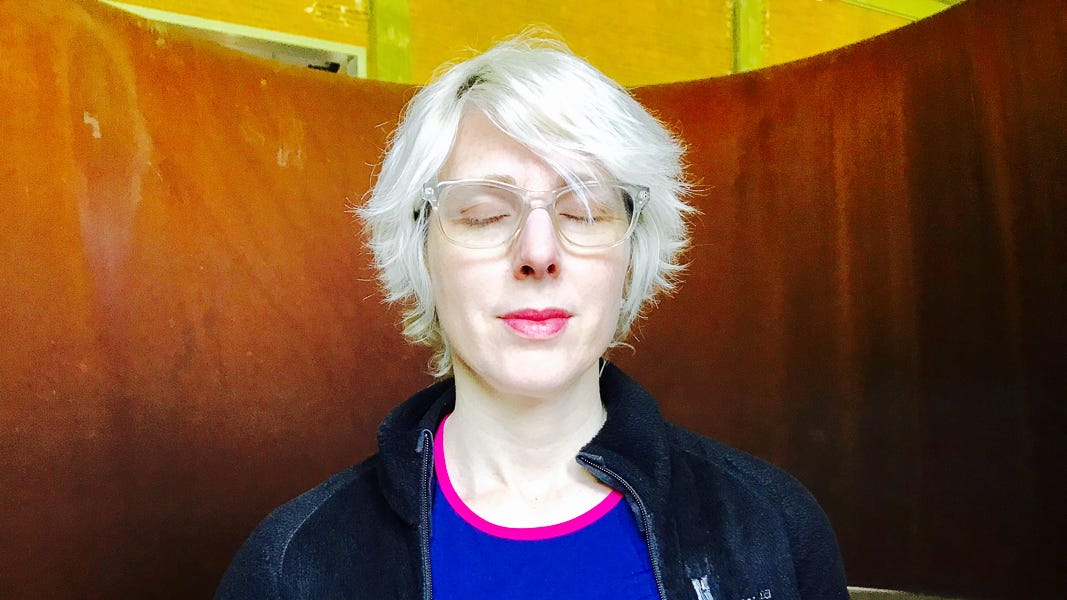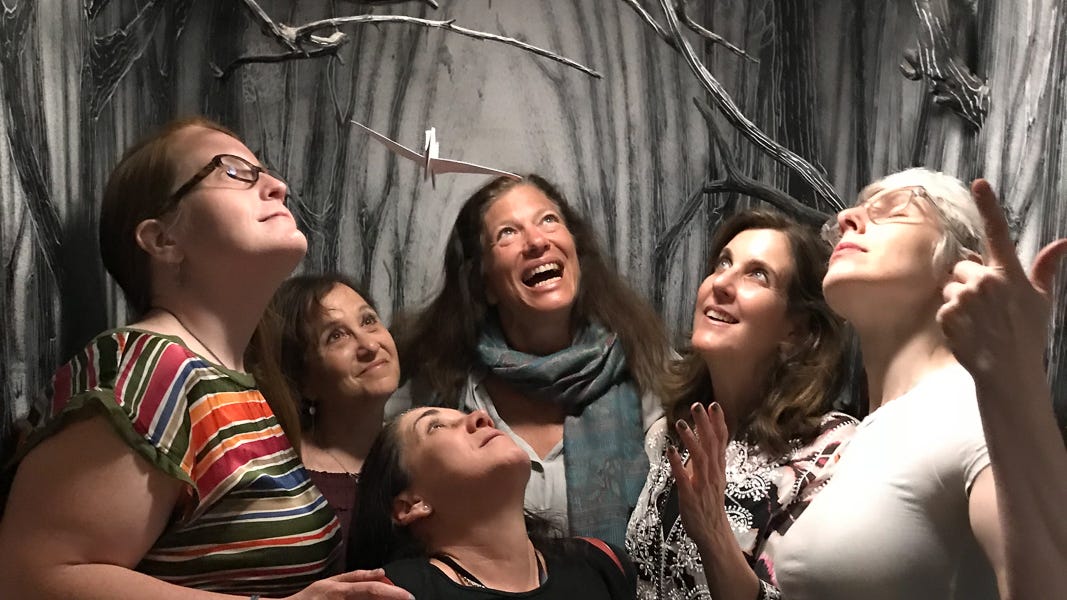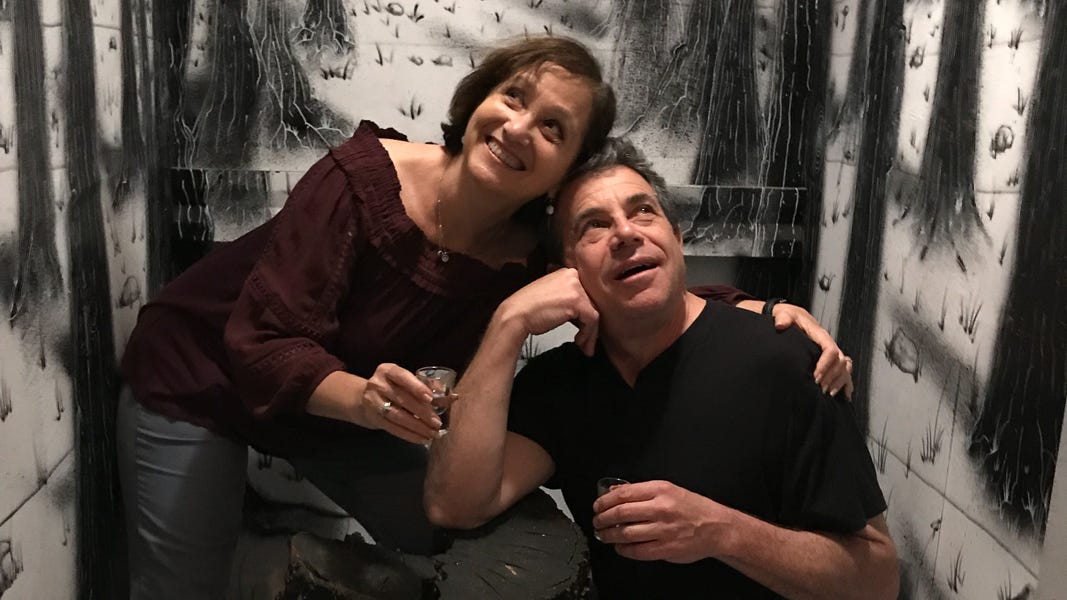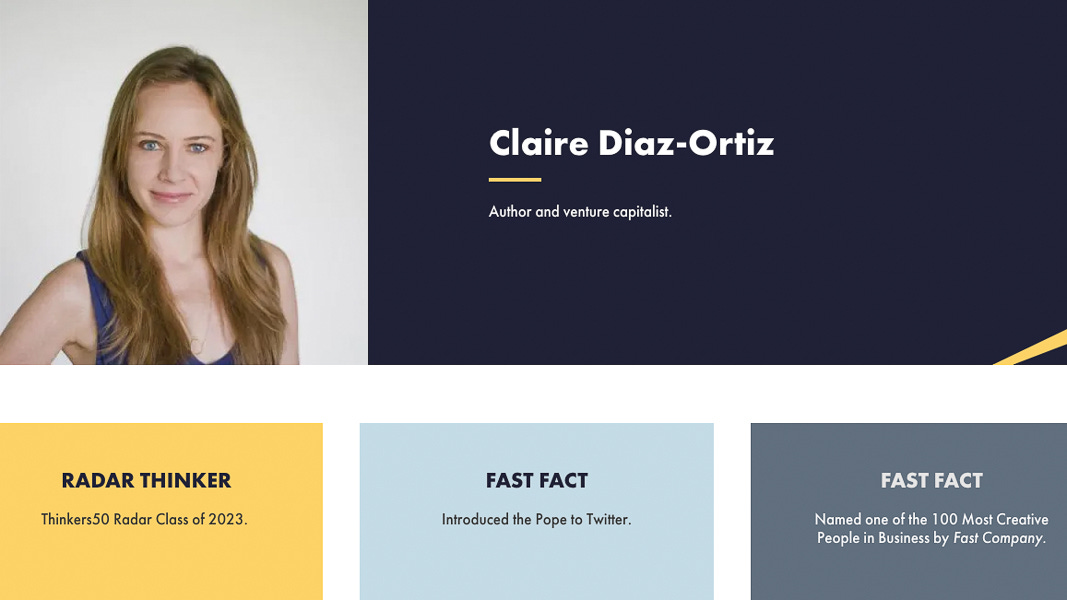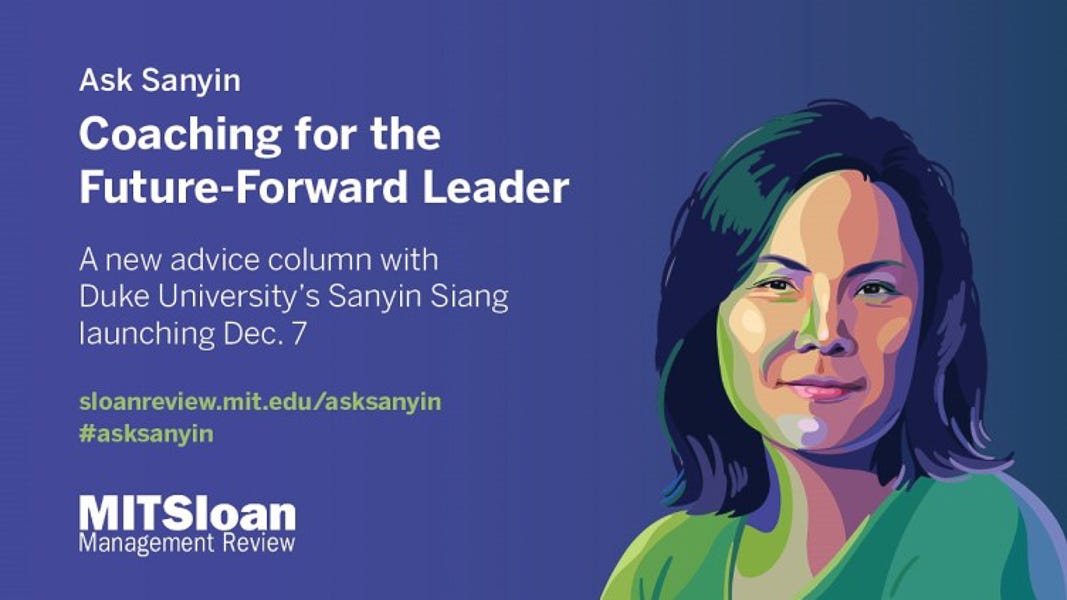Week 23.04 Living Your Gerunds
Have you ever been in a meeting and found your mind wandering and then wondering what you are doing in the meeting? Perhaps you were writing an email and focused so much on the words that you needed to remember the intention of the writing. Or on your way to dinner, wondering why you agreed to go? A quick way to re-ground yourself is to ask yourself, "what is my gerund here?" Mark Reiter, Marshall's co-author, asked that question the other day. A gerund, he explained, is the verb acting as a noun, easily recognized by its "ing" ending. Knowing your gerund for the meeting is an excellent shorthand for remembering the purpose of the meeting and your intention for how you want to show up. It is beneficial, especially when I am managing back-to-back zoom calls. Here are some examples of my gerunds currently in use:
Listening. If you have ever found yourself on a call when you are talking when you really should be listening, you know the power of remembering this gerund. Before I begin the call, I ask myself what is the expectation of the others on the call and how I want to show up. Others often present information, and more often than not, they want someone willing to listen. I am on the call expecting to learn what they have to say so that I can use that information to make informed decisions, support their efforts, or increase my awareness. It is so easy to want to jump into the presentation and add my thinking which feels valuable to me (at that time.) If I have written "Listening" on a card in front of me, I can diminish the number of times I interrupt, live my gerund, and hear what is being said.
Reflecting. On other calls, ideas are presented to me with the expectation that I will reflect on those ideas and build on them or approve them. In these meetings, I want to remind myself that my reason for attending the meeting is to listen intently to what is being said and understand. Then I need to reflect on what I have just heard and consider it in light of what I know through my experience and particular knowledge. After having listened and reflected on what I heard, I can share a few critical insights to which I might have to add value. In this case, I use the gerund of "reflecting" to emphasize spending time considering what I heard rather than what I have to say.
Curating. This is my favorite gerund at the moment. One of my roles as CEO of the 100 Coaches Agency is to listen to executives looking for a coach, reflecting on what they are saying and interpreting their needs based on my experience with coaching and coaching as a coach myself. When fully immersed in each of those gerunds, I am ready to begin curating and offering a trio of coaches to fit their needs, expand their idea of what's possible from coaching, and get more from their coaching investment. By understanding my gerund at this phase, I can stay focused on ensuring the correct mix.
Knowing your gerund helps you stay focused on what you need to do. In life and leadership, it is too easy to want to skip to the next step, multitask, or add value when the other person needs to be heard. Knowing your gerund makes it possible to do the work you need to do a little longer to get back to your intention when you drift from the center. Most importantly, it helps you stay focused longer on why you are there so you can give your best to those you love and lead. I get it. There is so much we want to do, and it's easy to forget why we are in this meeting or that conversation. Hopefully, this little life hack will help you keep on track, as it has been helping me. I still have a ways to go, but knowing my gerund has been a big help. Here hoping it works for you too.
Thinkers50 Radar Congratulations to Claire Diaz-Ortiz
Diaz-Ortiz’s thought leadership has included books such as One Minute Mentoring (co-authored with Ken Blanchard), Twitter for Good, and Design Your Day. Her research explores the meaning, importance, and impact of digital innovation in business today, highlighting key organizational practices and strategies that some of the most extraordinary leaders are using, and exploring the link between dreaming an innovative reality and creating it. As a venture capitalist and angel investor, Diaz-Ortiz helps early-stage startups and founders by clarifying their innovation, implementing their idea with intentional messages, and building and amplifying a movement around it.
Diaz-Ortiz has made 50+ investments in early stage startups, mostly in Latin America and the US. Most recently she was a partner at Magma Partners, where she started Brava, the first initiative of its kind to invest in women founders across Latin America. Diaz-Ortiz holds an MBA from Oxford University, where she was a Skoll Foundation Scholar for Social Entrepreneurship, and a BA and MA in anthropology and history from Stanford University. As one of the digital world’s earliest social justice activists, Diaz-Ortiz used Twitter to build awareness for AIDS orphans in sub-Saharan Africa, leading to the founding of Hope Runs, a small nonprofit organization in Kenya that operated from 2006-2019.
Does It Feel Like Your Department Has Been Sidelined? by Nihar Chhaya, MBA, MCC
As business needs and relationships at work continuously change, so does the relative influence of certain departments. In this piece, the author offers strategies to follow if you’re getting the sense that your department is being cast aside: 1) Reflect on the root cause of your exclusion; 2) Tie your department’s work to clear business needs; 3) Broaden your perceived value; 4) Keep driving results; 5) Build up those that are coming up after you. Read the full article in HBR
Leadership Advice Column and an Invitation to Build Our Collective Wisdom by Sanyin Siang
“For last year's words belong to last year's language. And next year's words await another voice. And to make an end is to make a beginning."- T.S. Eliot
The start of a new year presents opportunities for reflection. These words by the poet T.S. Eliot provoke thoughts on the past, present, and future. Reading them may prompt you to think about the person you were in relation to the person you are now and who you need to be. And I smile to think about its connection to my latest piece, Ask Sanyin: How Do I Escape the Specter of My Predecessor? Few new leaders start with a blank slate. You are wise to focus on how comparing yourself with your predecessor is affecting your confidence, rather than trying to win a popularity contest against a ghost. In my coaching and advisory work with CEOs and their successors, I’ve consistently found that leaders who transition effectively are able to resist the urge to overprove themselves by trying to show that they are the smartest person in the room.
With love, wonder, and gratitude. Scott






